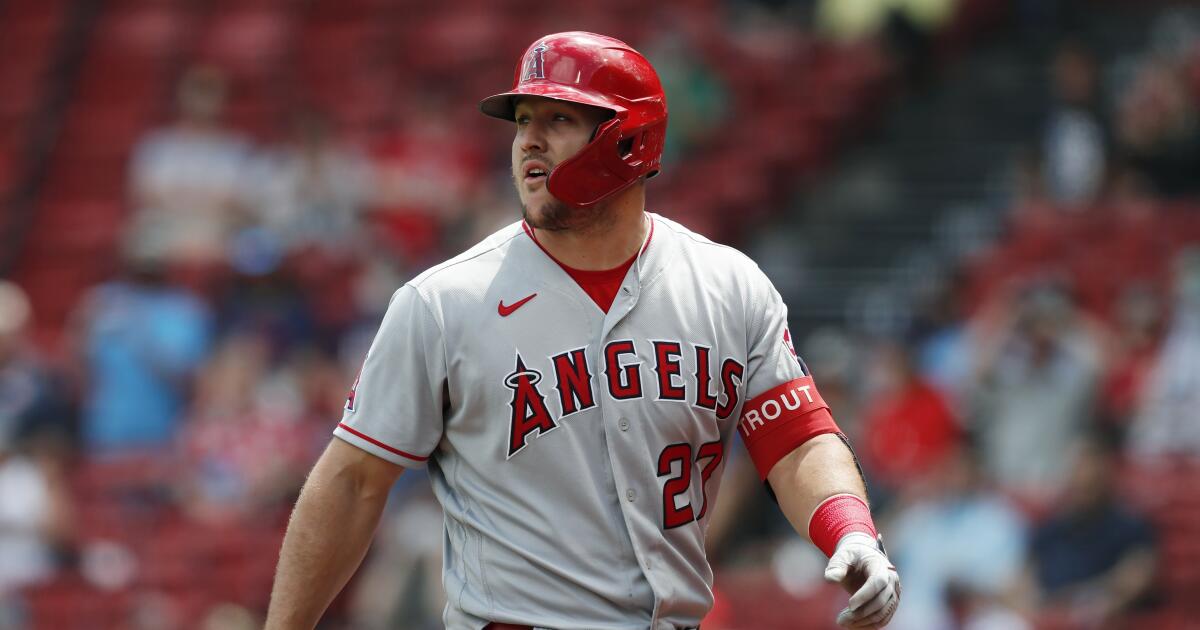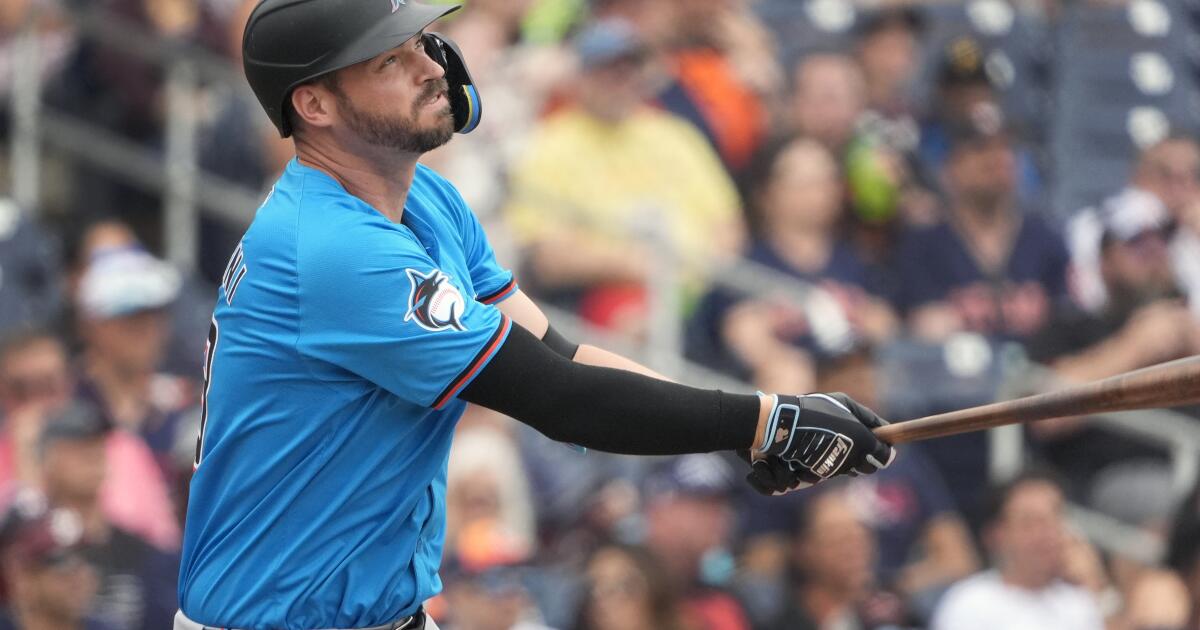MLB to begin streaming in-market games for Angels, Dodgers, Padres and other teams
Major League Baseball is making streaming options available for fans to watch in-market games of 20 teams, including the Dodgers, Los Angeles Angels, San Francisco Giants and San Diego Padres — a significant shift to respond to the fast-changing TV landscape.
The Angels on Tuesday announced its arrangement with the league to make its games more widely available. The club said the option — Angels.TV — would be available for purchase for $99.99 for the full season or $19.99 per month through the MLB app.
“We are excited to partner with Major League Baseball to bring Angels games to their streaming platform,” Angels President John Carpino said in a statement. “Our priority is making it as easy as possible for fans to watch Angels Baseball and MLB’s industry-leading app provides another great option to stay connected to the team.”
The league separately announced the move, which provides options for fans of other teams, through its MLB app. In-market games for the Arizona Diamondbacks, Baltimore Orioles, Cincinnati Reds, Cleveland Guardians, Colorado Rockies, Kansas City Royals, Miami Marlins, Milwaukee Brewers, Minnesota Twins, New York Mets, Philadelphia Phillies, St. Louis Cardinals, Seattle Mariners, Tampa Bay Rays and Washington Nationals will be provided through the app.
Games will still be available to traditional pay-TV subscribers.
Spectrum, owned by cable giant Charter Communications, which distributes the Dodgers’ SportsNet LA had previously made available Dodger games as a streaming option through a separate app.
On Tuesday, ESPN announced that it would become the new streaming home of MLB.TV, bringing out-of-market live games to the ESPN App and ESPN.com.
“With MLB.TV now available through ESPN, we’re taking a significant step forward in reinforcing ESPN as the home of the MLB regular season while deepening the value proposition of the ESPN Unlimited plan – giving fans even more flexibility in how and where they watch all season long,” Rosalyn Durant, Executive Vice President, ESPN Programming & Acquisitions, said in a statement.
The move comes as traditional regional sports networks struggle amid the exodus of pay-TV customers. Regional sports networks once were viewed as cash cows for teams and TV programming companies that owned them but, in recent years, at least one regional sports network owner has filed for bankruptcy. That pompted the MLB to step in to fill the gap.
The league said it also was taking over the television production of games for 14 teams, including the Padres and Arizona Diamondbacks.

